PravConf 2025 took place on the weekend of 1st-2nd March. Besides being the first official get-together of the Prav community, it also provided the perfect opportunity to get our Cooperative Society into action!
The hurdles behind
In order to register as a multi-state cooperative society, we need to have at least 50 members each from two states. This has long been a hurdle for us. Over the past three years, we’ve received more than 175 responses from across the country, with the numbers crossing 50 in both Kerala and Maharashtra.
Then came the challenge of reaching out to those 100+ members and collecting their ID cards and contact details for formal registration. We didn’t have to get their physical signatures onto the bye-laws document as initially thought, but reaching out to potential members was still hard, especially since some of them had signed up over two years previously and forgotten about it in the meantime! Ideally, this would have been the time to also collect membership fees, but there was no bank account to direct those fees to. When we approached a few banks in this regard, they said they couldn’t create an account for us unless we had first been registered.
Fortunately, we found a workaround for this pigeon-and-egg problem. It turns out that if we have less than 50 members and from only one state, we’re not legally required to register. There are some restrictions to unregistered cooperative societies, such as members having joint liability and the cooperative society not being allowed to itself enter into contract as a society. However, it would be enough to get us a PAN card and bank account, which would complete the first step of our eventual goal. Or so we think. The trouble with the law is that you can never be sure unless you’ve actually done it!
So here’s the new plan: form an unregistered Multi-State Cooperative Society and use that to lay the groundwork for a full registered cooperative.
A small note on that. A Multi-State Cooperative Society is allowed to remain unregistered as long as it does not have members from more than one state. It sounds like that makes us a single-state Multi-State Cooperative Society, an odd situation to be but one that we hope is temporary! Since most of our active community members are from Kerala, we have decided to stick to including members from there until we are able to reach the requirements for registration. Of course, others are still welcome to participate in Codema and other Prav spaces; being from the state is only a temporary legal requirement which we hope to overcome soon.
With that roadblock out of the way, it was time to start working on the details—which means figuring out what roles a cooperative is supposed to have and deciding who fills them. That starts with the Board of Directors.
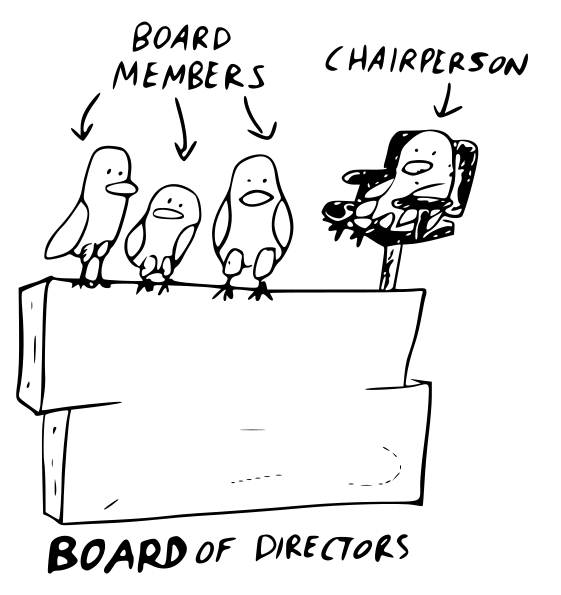
Theoretically, every member of the society gets to have a say in what happens in the society. However, it’s not practical to get hundreds of members in one meeting every time. That’s where the Board of Directors steps in: these are the people who are elected to actively take part in decision-making and managing the day-to-day affairs of the Society.
As per our bye-laws, elections to the Board happen every 2 years. Also, to prevent the same people from perpetually filling that role, it was decided by the community to set a limit of 5 consecutive terms for any one person to be on the Board, as well as a hard limit of a total of 20 years (consecutive or otherwise).
The Board of Directors is authorised to pass resolutions and make decisions on behalf of the Society. However, they are eventually beholden to the rest of the Society. That means any of their decisions can be revoked or overridden through a General Body Meeting, in which all Society members (not just ones on the Board of Directors, but also the people who elected them in the first place) get to vote.
It doesn’t end there. If the community is not satisfied with the performance of any of the directors, they have the right to get together at any point and recall that person from the Board (in other words, an un-election!). This can happen at any time, so unlike with national government elections, Board members are held accountable even after the elections have taken place.
The room where it happened
On the second day of PravConf, after the speeches and talks were over, we held our first such “election”! This was preceeded by a brief introduction to our cooperativewards journey, and an invitation to anyone (residing in Kerala, for now) to sign up as a member.
In the meeting, five people stepped up to be cooperative members and also to serve on our temporary Board. Since there are 10 seats on the Board, we didn’t have to have any voting—you could say they were elected unopposed. This process was somewhat informal, and mainly to have a starting point, but the idea is to elect a final Board following the official process once we have other things running.
The first five Board members elected during the 2nd March 2025 meeting were:
- (Pirate) Praveen A - Chairperson
- Athul RT - Vice Chairperson
- Abhijith PA (bhe) - Treasurer
- Kannan V M
- Pranav J (perry)
We also have Ravi Dwivedi who was appointed Chief Executive, which makes him an ex officio Board member (he can attend the board meetings, but is not elected and he doesn’t have voting rights in the Board).
As you can see, some of the Board members have taken on specific other roles. These roles are defined in the Multi-State Cooperative Society Act of 2023 and our cooperative bye-laws. Here are the important ones.
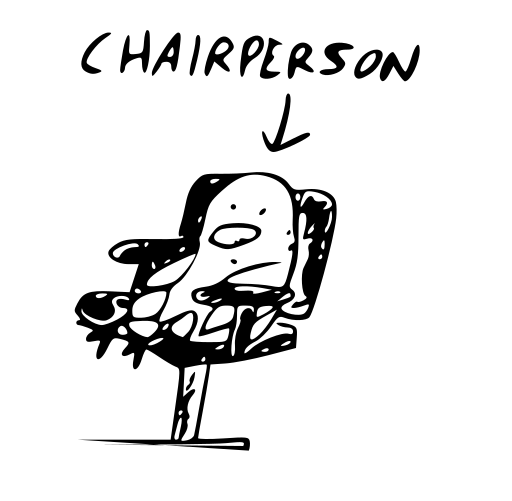
The Chairperson is in charge of presiding over Board meetings, and signing the proceedings once the meeting in question is over. The chairperson can also take emergency on-the-spot decisions (which can then be renewed later).
Pirate Praveen has agreed to be Chairperson of our current (temporary) Board.
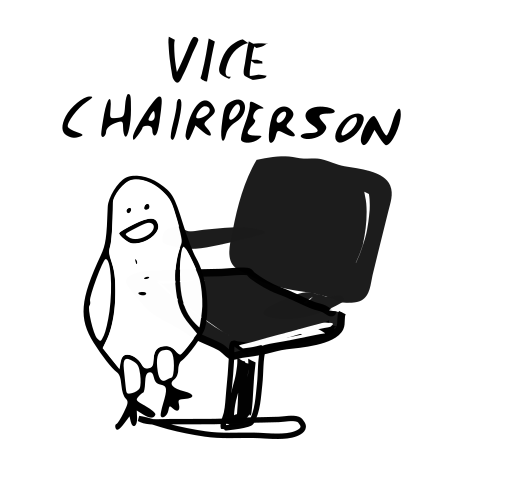
The Vice Chairperson is essentially like a backup for the Chairperson, taking over their role when the Chairperson is not available or when the Chairperson authorises them to do so.
Athul has agreed to be Vice-Chairperson on our current (temporary) Board.
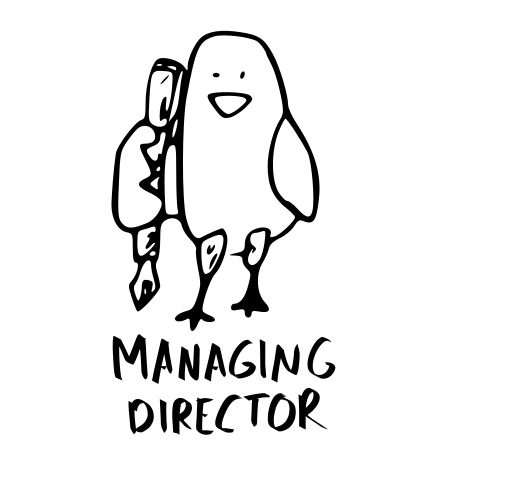
The Managing Director, also known as Chief Executive, is a unique role. Unlike the other Board members who have to be elected, the Board can select anyone to be Chief Executive—including people outside the Cooperative Society itself. The Chief Executive’s role is to convene meetings, appoint people to various posts (with Board approval), and generally manage day-to-day affairs.
Since this position is appointed, we were not restricted as in other cases to people residing in Kerala. Hence, the Board was able to appoint Ravi who agreed to serve as Chief Executive.

We had planned for Abhijith PA to be Treasurer, so that he could register and operate the bank account on behalf of Prav. However, while reviewing the bye-laws, we realised there was no such role defined there! “Treasurer” was only mentioned in passing in a different section, but the bye-laws stated that the Chief Executive was responsible for managing funds and operating accounts.
This would be difficult for Ravi, since he is based in Uttar Pradesh whereas the bank account would have to be operated in Kerala. To avoid this situation, we amended the bye-laws to optionally include a treasurer on the Board. The Chief Executive would only have to manage funds in cases where no Treasurer was appointed.
And so, after a small hiccup, Abhijith PA is now the Treasurer on our current (temporary) Board.
Reviewing the Bye-Laws
The Prav Bye-Laws are based on the bye-laws of CFCICI, a Multi-State Cooperative Society that backs, among other things, a supermarket chain near Praveen’s place called Centreal Bazaar.
From the original bye-laws, we have also made several custom modifications based on community discussion. We would like to thank Buster for sitting through the document for a detailed review. We would also like to thank Isika, who looked through our draft with her lawyer’s eye and provided several suggestions to set things straight. And finally, thanks is due to Pirate Bady who went through the latest version of the bye-laws with another set of comments and suggestions! His pending updates notwithstanding, we have now reached the stage where we feel it’s more or less ready to submit to the bank.
You can review the latest copy of our draft here:
Besides having the Bye-Laws as a legal document, we also wanted to “beta test” them to see how they worked in practice. It was a good thing we did, as when we tried to put ourselves in the roles defined there we noticed some restrictions and limitations. The absence of a Treasurer was an obvious problem, that we noticed immediately when Abhijith PA realised he had no role to fill! Other issues were a bit more subtle.
Sitting together in a café on the evening of the second day of PravConf, and again the next day at Lulu Mall’s food court, we worked to address the identified shortcomings.
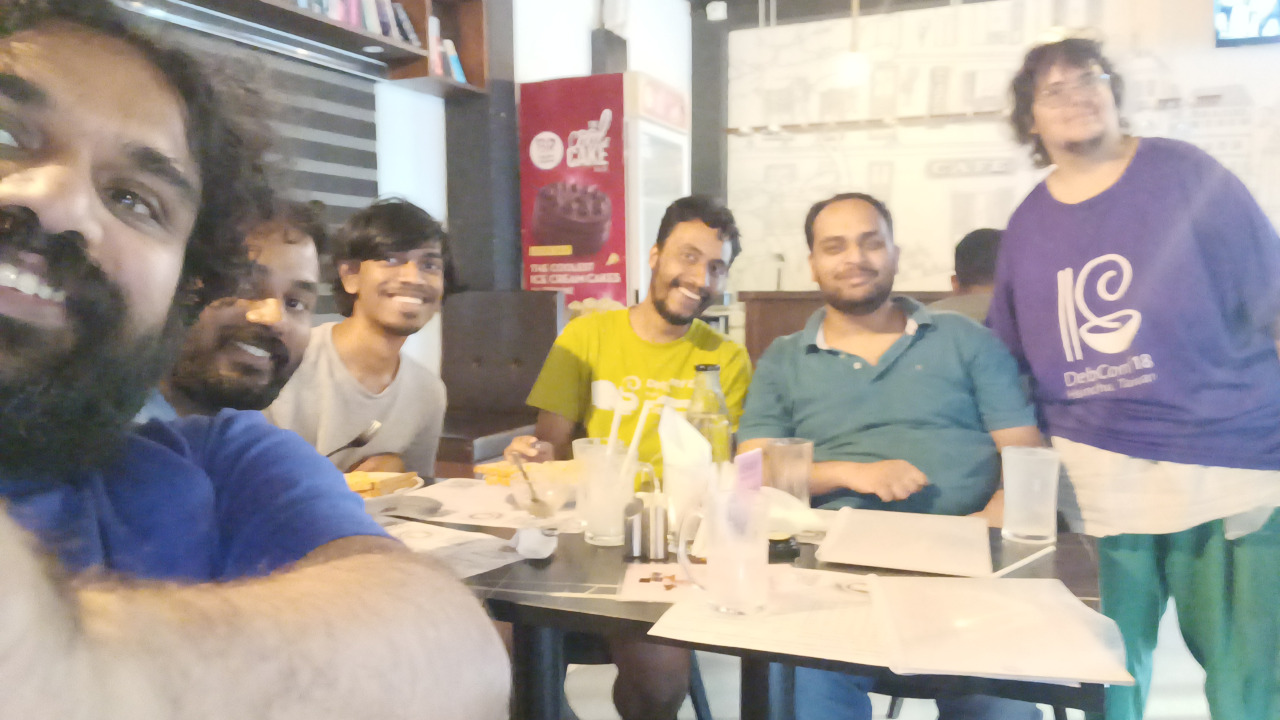
How to fire a CEO
The first was a somewhat hypothetical point regarding the Society’s official seal. This is the seal we would use on various official documents, and our original bye-laws said it would be in custody of the Chief Executive, to be used upon authorisation by the Chairperson. But what if we wanted to fire or replace the Chief Executive? Affixing the seal on such an order would be impossible if the Chief Executive chose not to get themselves fired!

In practice, this would likely have worked out anyway as the appointing of a Chief Executive is an internal matter not necessarily requiring a seal, but our discussion also highlighted the real logistical issue. Ravi, who was our current Chief Executive, is based in Uttar Pradesh whereas most of the Board meetings (and therefore, the documents that had to be signed) would probably be in Kerala.
To solve both the above problems, we amended the Bye-Laws to state that either the Chief Executive or the Chairperson could affix the seal after due authorisation from the other. Each would get one copy of the seal, so there would be a total of two in circulation. Additionally, we made an exception where the Chairperson could use the seal without the Chief Executive’s permission on orders related to appointing or removing a Chief Executive! (In such cases, the Chairperson would need to get authorisation from the majority of Board members in the decision-making meeting instead. Ravi’s position was now happily insecure.)
Digital voting
Our discussions about authorisation led to further scrutiny on that term. Usually, “authorisation” means physically signing the document in question (or maybe sending a PDF back and forth).
But in an age where meetings are often online, it made sense to allow such authorisations to happen digitally. The result was several sections related to cryptographically signing messages using PGP keys—which sounds complicated, but has worked out quite well in practice because it merely involves turning on encryption in Thunderbird before exchanging emails! Our bye-laws also allow the usual signature-based verification; cryptographic signing is just an additional option.
On a related note, the updated Bye-Laws also allow remote voting: again, this uses PGP keys. It remains to be seen how well this holds up against the official laws related to voting, but if it works out it could help other cooperatives set up a more modern voting system too.
Here we pause for a callout to the Prav community (that means you!). Are you a lawyer, or do you know anyone with a law background? If so, it would be great to have someone look over our current laws related to voting and see whether they’d hold up, or what we could modify to make them do so.
The first few meetings
Now that we have a Board, it’s time to put it into action! The first resolution has already been passed, related to authorising Abhijith PA to open a bank account. Before that can happen though, we need a PAN card which requires a registered office, so Praveen is working on renting a space to use as our office.
After the initial gathering, several more people stepped up to become members of the cooperative society, as well as some who agreed to join the Board. Following due process, we held a board meeting on the 10th of March to approve eight new cooperative members.
In the same meeting, we also constituted a Membership Team to collect documents from people who want to be members, so that we can officially list them as cooperative members. The Membership Team itself needs members, who in this case are:
- Athul
- Vysakh
- Pranav
- Kailas
- Abhijith Balan
Finally, we created a special mailing list to record digitally signed emails for votes in the general body meeting. This could be made into a more structured system in future, but a mailing list serves us well for now!
That takes care of cooperative members, but what about board members? On the 15th of March a Special General Body Meeting was called to approve five new members onto the Board, bringing it to its full strength of ten:
- (Pirate) Praveen A - Chairperson
- Athul RT - Vice Chairperson
- Abhijith PA (bhe) - Treasurer
- Kannan V M
- Pranav J (perry)
- Kelvin (muzirian)
- Vysakh
- Ambady
- Kailas
- Vivek K J
As you can see, the balance of power is such between cooperative members and the Board that each needs approval of the other!
The road ahead
The Prav Cooperative, though unregistered, already opens up several doors for us. Besides letting us manage our own funds, the first of these would be allowing us to sign up to an Indian SMS gateway, thereby reducing our message sending fees by 90%! Being formally recognised also means we can hopefully register under our own name on the Google Play Store and other official sources, rather than having to piggyback on someone else’s account.
In the longer term, we have to figure out how to accomodate people who are not cooperative members—either when they are unable to due to not being (for now) from Kerala, or those who would rather not get legally involved at all. A few options are being discussed, but input is, as always welcome.
Join us!
Prav is a collective effort, and you’re welcome to be part of the collection! Our volunteer page has more information, but here are some specific ways you can help:
- If you are a lawyer or know someone who is: help to review the parts of our bye-laws related to digital signing and remote voting.
- If you are good at reaching out to people: help to collect ID cards and other documents of those who want to be members of the Prav cooperative society.
- If you know arithmetic: help the Treasurer keep track of accounts and balances.
- If you would like to become a member yourself (now, if you’re from Kerala, or in future otherwise): head right here!
As always, you can always donate or volunteer to other areas of your choice.







